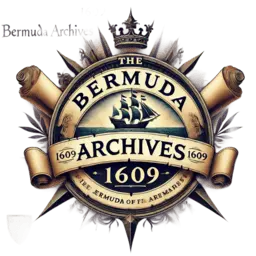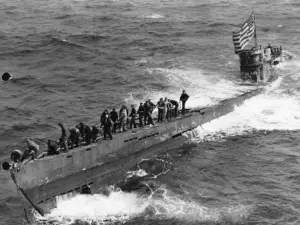- Description
- Curriculum
- Grade
© BemudaArchives.com
Bermuda, although known about since at least 1515 had no permanent population, only infrequent shipwrecked mariners until 1609 when a massive hurricane brought the first involuntary English setters who were shipwrecked here. They were on their way to Virginia, Their stay in Bermuda was so novel and pleasant that it was not until 1612 that they finally reached Jamestown Virginia in 1612 and helped save Jamestown from starvation. Their experience as Bermuda’s first settlers led directly to Britain’s deliberate colonisation of Bermuda in 1612. In this course and others we look at Bermuda’s uniquely incredible story,
Learning Objectives:
- Understand the chronological development of Bermuda from its discovery to the late 18th century.
- Analyze the interplay of European powers (Spain, Portugal, France, and Britain) in shaping Bermuda’s early history.
- Evaluate the significance of the 1609 Sea Venture shipwreck and its broader implications for British colonization in the Americas.
- Explore the social, economic, and military factors that defined Bermuda’s colonial experience, including slavery and naval expansion.
- Develop critical skills in interpreting historical documents, maps, and narratives to reconstruct Bermuda’s past.
Prerequisites: None; except a passion for Bermuda history, colonial history or world history.
-
1Early Exploration and Encounters: 1505-1599
We follow various shipwrecks of Spanish, French, and Portuguese vessels on Bermuda's reefs throughout the 16th century, highlighting the island's reputation as the "Isle of Devils." English involvement increases later in the century, including naval engagements near Bermuda and the eventual links of individuals like Sir George Somers and Sir Thomas Gates to the island, foreshadowing future English colonization. We will also touch upon broader historical events like English exploration in the New World, the British slave trade, and Anglo-Spanish conflicts.
-
2Bermuda's Genesis: Jamestown, Shipwreck, and Early Colony: 1603 -1614
-
3Early Colony History: 1615-1628
The establishment of the Somers Isles Company and its governance, contrasting it with the Virginia Company. The texts chronicle significant events such as the introduction of Bermuda's first currency, "hogge money," the surveying of the land, and the development of its political structures, including the formation of a parliament. Furthermore, these excerpts note the arrival of the first enslaved people and the implementation of early laws, alongside daily life occurrences like famines, trade, and interactions with other colonies like Virginia.
-
4Bermuda and North American Colonies: 1630-1669
The 17th-century colonization of Bermuda and other parts of North America by the British. They detail the establishment of settlements like Boston and Maryland, and the political and religious motivations driving emigration. The texts also highlight Bermuda's unique developments, including early trade, agricultural practices, and instances of slavery and witchcraft trials. Furthermore, they illustrate the evolving relationship between the colonies and England, marked by trade regulations, governance changes, and the impact of English political upheaval.
-
5Trade, Governance, and Society: 1670-1749
Highlights the island's evolving maritime activities, including shipbuilding, trade, privateering, and even piracy, alongside the development of the Bermuda rig. The sources also document the shifting social landscape, marked by significant changes in the slave population, legislative attempts to control it, and instances of both resistance and free non-white communities. Furthermore, they detail the political and administrative transitions, such as the dissolution of the Somers Isles Company and the establishment of direct Crown rule, including the tenures and challenges faced by various governors. Finally, the text touches upon economic activities beyond the sea, including agriculture, salt production in the Turks Islands, and early colonial life, incorporating events like natural disasters, the establishment of institutions, and notable individuals.
-
6Trade, Conflict, and Revolution: 1750-1780
Maritime activities, including shipbuilding and trade, particularly with the American colonies. The text details various events such as shipwrecks, economic developments like whaling, and the impact of the American Revolution on the island. Significant individuals, including governors, merchants, and figures connected to early American history, are mentioned in relation to Bermuda's social and political landscape. Furthermore, the sources touch upon matters of local governance, military presence, and even social issues like slavery and public health within the Bermudian context.
-
7From Revolution's End to Naval Hub: 1781-1799
Highlights the island's significance during and after the American Revolutionary War. The text details Bermuda's governance, shifting from Lieutenant-Governor Bruere's complaints to the arrival and impactful tenure of Governor William Browne and later Henry Hamilton. Economically, the encouragement of cotton cultivation and the rise of Bermudian privateering are noted, alongside the development of local shipbuilding and trade. Social aspects include the presence of enslaved people, their roles in maritime activities, instances of resistance, and the arrival of Loyalists and refugees. Strategically, the documents underscore Bermuda's growing importance to Great Britain as a naval base, leading to extensive surveys, the establishment of a dockyard, and the refortification of the island. Key events like the founding of Hamilton as the new capital and the beginnings of local institutions like a newspaper and postal service are also recorded.
-
8





